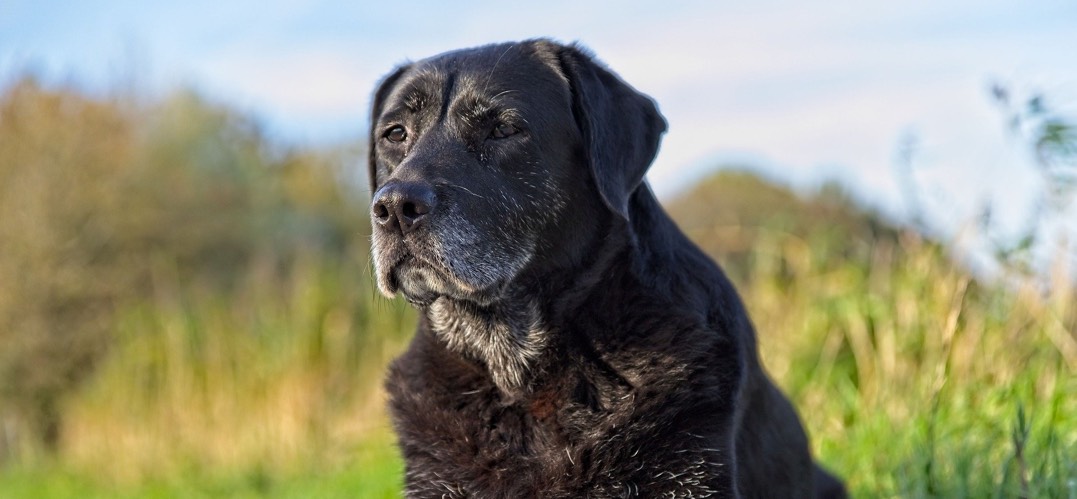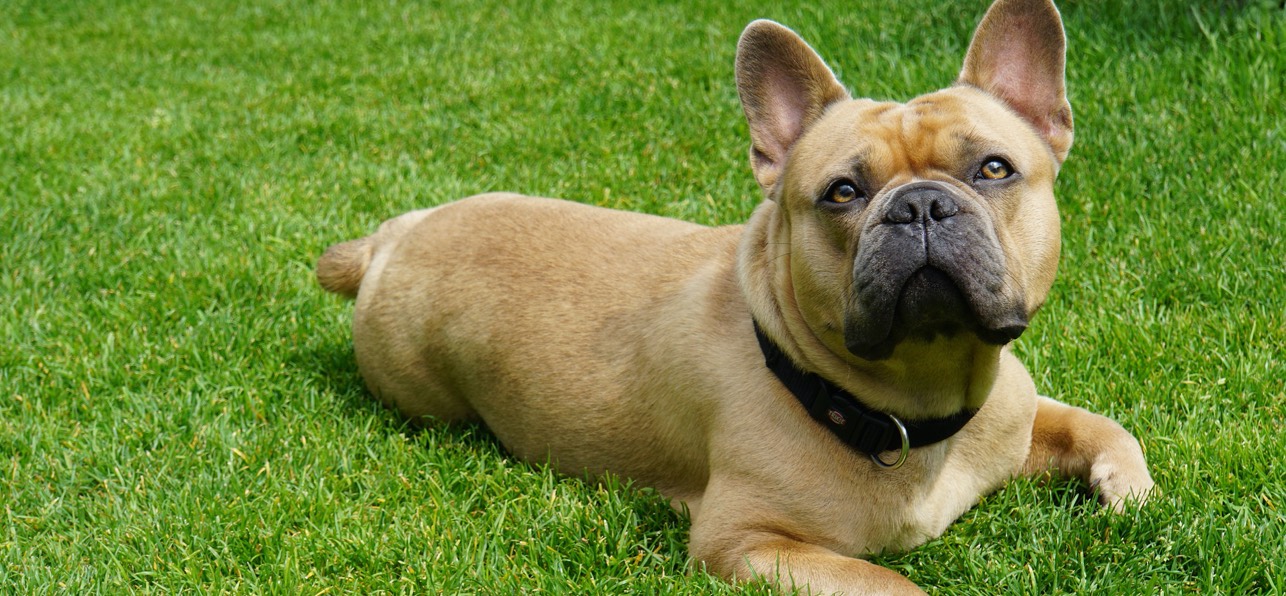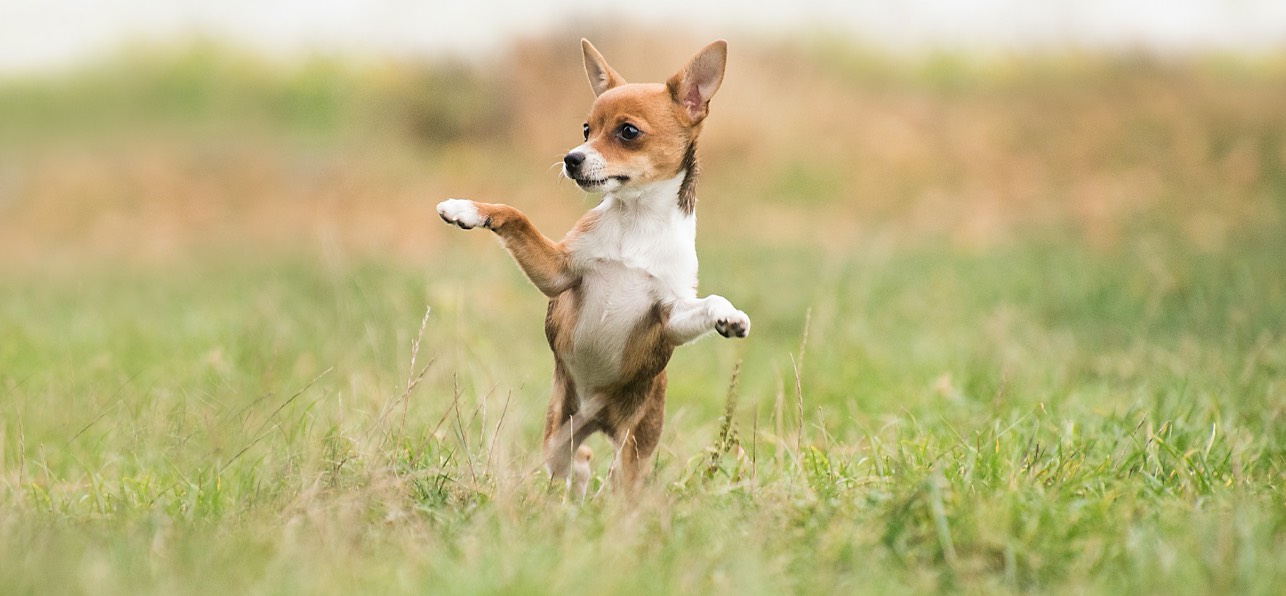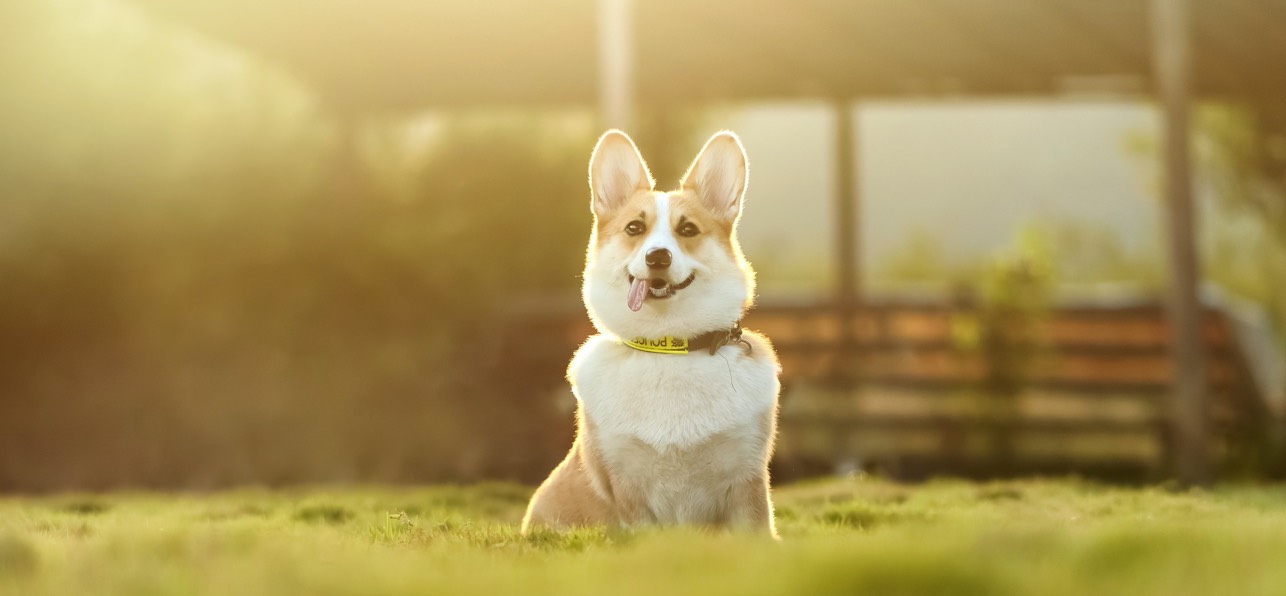When dogs enter their senior years, they are more likely to develop certain health conditions or problems, which can impact their lives and their levels of exercise. As they age, they tend to become less active or want to rest more, but it is important to keep them healthy and active.
Senior dogs tend to develop health conditions, which can be breed-related or down to their age. These health conditions can include:
- Deafness
- Loss of sight
- Arthritis
- Joint and mobility problems
- Heart conditions
- Dog dementia (Cognitive Dysfunction Syndrome)
If your dog starts to develop any of the above health conditions, or problems moving and getting around, or they don't seem to enjoy the idea of going for a walk, then you must consult your veterinary practice for professional advice. Your vet can describe certain medications or exercises that can help improve joint pain and improve their quality of life.
General advice caring for your senior dog
Listed below are a few tips to help better care for your senior dog:
- Carry on walking. You must not stop walking your senior dog, instead, go for shorter walks around familiar surroundings. Senior dogs still need to experience the outdoors to have a sniff and stretch their legs and get some fresh air to their lungs. It is best to keep your walk to a short route that your senior dog can manage.
- Keep to a familiar route and place. If your senior dog has developed issues with their senses, then it is best to keep them to a familiar route that they know and this will help prevent them from becoming stressed and anxious during the walk.
- Check the weather conditions. Make sure to check the weather and avoid walking your senior dog if the weather is too cold or too hot. As dog's age, they become less tolerant of warmer and colder weather.
- Keep their exercise regular and gentle. Senior dogs still need exercise, but as they age they should be taken on shorter and less strenuous walks. Senior dogs tend to suffer from stiff joints and therefore need regular exercise daily.
- Consider your surroundings. If you’ve noticed your dog's hearing or eyesight isn't as good as it used to be, then you will need to consider the location of where it is best to walk them. Avoid busy areas with cyclists as this can scare your dog if they're not expecting someone to cycle by. If you notice your dog is stressed or a little anxious, reassure them by coming down to their level and stroking them.
- Exercise your dog indoors. If the weather is too hot or too cold, then it is best to exercise your senior dog indoors. Provide plenty of activities and mental stimulation which will help keep them active and mentally stimulated.
- Walk at your dog's pace. Don’t pull on their lead for them to walk faster and avoid rushing them to exercise more. If they want to sit and rest, you should allow this until they’re ready to go again. Your senior dog will let you know when they’ve had enough exercise and this should be respected.
If your senior dog is showing signs that they’re unable to walk or exercise how they used to, then you must consult your vets asap.
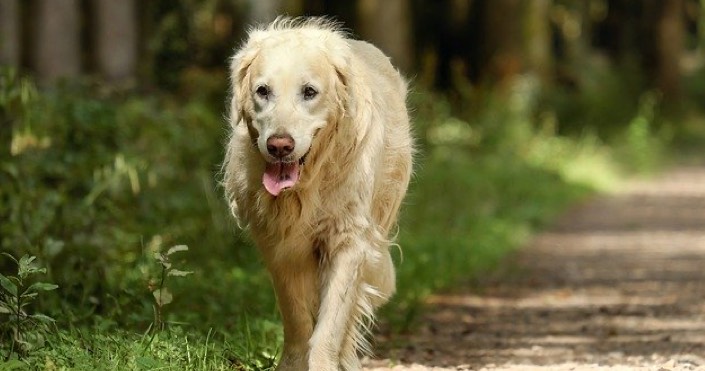
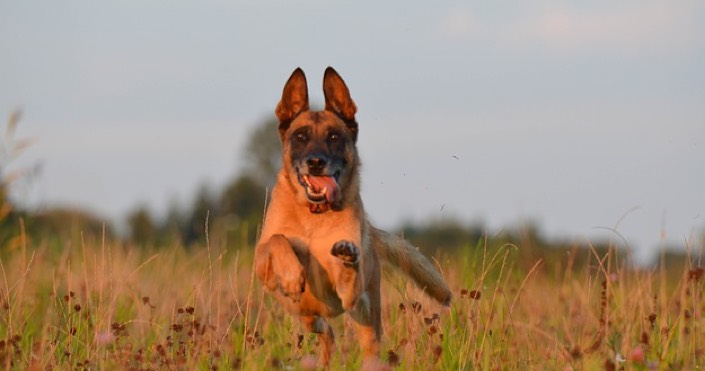
Exercises for senior dogs
As your dog ages, they still require exercise and there are plenty of exercises they can still do, you just need to go at their pace and if they want to stop, you must stop the exercise immediately.
- Play with your dog- all dogs love playtime, irrespective of their age. Make sure to find time during the day to play their favourite game.
- Carry on walking your dog - all dogs love to walk, just remember to keep your senior dogs walking shorter.
- Take your senior dog swimming - not all dog breeds love swimming, but if your dog always liked to swim, then you should still take them but be cautious of the location. Swimming pools tend to have high sides and senior dogs may struggle to get out of the pool. Always supervise your dog when they're swimming and make sure to dry them off after.
- Socialise your senior dog - dogs love to socialise. Senior dogs may struggle to keep up with another younger dog breed, so be cautious of what dog breed you allow to play with your senior dog. Senior dogs don't have much tolerance when it comes to puppies, so it is best to avoid a play-date with a puppy. Socialise your senior dog with another dog of a similar age.
- Old dogs can learn new tricks- train your senior dog to learn new tricks or commands. Respect their tolerance levels and ensure you don’t push them too hard.
- Play scent games- dogs love to sniff and they have an excellent sense of smell. Playing scent games is a great way to keep them mentally engaged.
Mobility aids to support your senior dog
If you have noticed your dog's ability to exercise or walk has been affected by their mobility, then there are plenty of mobility aids you can introduce to their life to help keep them mobile and healthy. Providing exercise for your senior dog will help increase their quality of life.
- Ramps- if your dog is struggling to access the house, car, or a certain area, then invest in a dog ramp so they have easier access.
- Play brain games with your senior dog to keep them mentally stimulated.
- Look into physiotherapy or hydrotherapy that may help them.
- Provide rugs or mats where the flooring in the home is too slippery for your senior dog.
- Walk them in areas where the ground is flatter and fewer obstacles to overcome whilst out walking. Ensure the walks are shorter and less strenuous.
- Keep your senior dogs' nails trimmed regularly. Long nails can affect the way your dog walks and can also hurt if the nails are too long.
Lastly, as your dog ages and they become less mobile, you must always remain patient and avoid getting frustrated if your dog is unable to walk far or if they have a little accident in the home. Dog's age as do us humans and we must always be kind.

